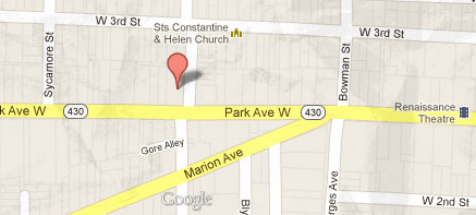John 15:7-17
15:7-8
“If you remain in me and my words remain you, ask whatever you want, and it will be for you. My Father is glorified by this: that you bear, or produce, much fruit, proving yourself to be my disciples.”
15:9-10
“As the Father has loved me, I have also loved you, now remain in my love. If you obey my commands you will remain in my love, just as I have kept My Father’s commands and remain in His love.
15:11-17
“I have told you this so that my joy may be in you and that your joy may be complete. 12 My command is this: Love each other as I have loved you. 13Greater love has no one than this: to lay down one’s life for one’s friends. 14you are my friend if you do what I command. 15I no longer call you servants, because a servant does not know his master’s business. Instead, I have called you friends, for everything that I learned from my Father I have made known to you. 16You did not choose me, but I chose you and appointed you so that you might go and bear fruit—fruit that will last—and so that whatever you ask in my name the Father will give you. 17This is my command: Love each other.
2X Love:
Taken pleasure in; love of reason, to esteem - a preferential love, a discriminating affection which involves choice and selection
Remain in:
● To tarry or sojourn in; not to depart, not to leave, to continue to be present;
● To dwell as it were within him, to be continually operative in him by his divine influence and energy.
● To be rooted as it were in Hi, knit to Him by Spirit they have received from Him
Obey, observe
3X Love: goodwill, esteem, benevolence.
What is love?
● How do we define love?
● How do we theorize love?
● How do we talk about love?
● How do I love?
● Again, what is love?
● What does love do? Can love be love if it doesn’t really, love?
1John 3:16-18; 4:7-21
What is it to be loved?
What does love have to look like for you to be able to be truly loved?
To believe that you’re loved?
What does love have to be for you to be able to feel loved, for it to be effective as love, for you to be able to honestly, genuinely, deeply receive being loved?
We are going to keep it really fundamental today. A kind of nuts and bolts kinda day.
John 15 “Jesus said “Greater love has no one than this: to lay down one’s life for one’s friends”
How does this look in the context of the “one another”, the body, the place these truths are intended, instructed, corrected, and practiced in the heat of being compressed in the intimacy and responsibility and accountability of the brotherhood of believers?
Phil 2:1-11
How does this type of love, lived out among the brotherhood, overflow into the outlying community?
What does it look like in the life of the community?
Isaiah 58
“What about me?“ “What about me being loved?“ “What about my needs, wants, and desires?“
All of us, from time to time feel this way. And we do, we all need to be loved the way we need to be loved. But, the one who rests in the love of God in Christ and consistently abides there (with Him), has this need satiated to a large degree in and by that abiding, their being consistently and persistently present with Jesus, by His Spirit, in His word. So, though they may occasionally call out in such a way as to express their need to be loved, they will not remain in this mode long or return there too often… hence the phrase “fewer and further between” becomes the mark of their journey of love, loving and being loved.
There is no doubt that God very often uses human vessels to express His love. So it is important that we maintain good and healthy fellowship with Him and others for that love to be properly expressed to one another. This is a matter of being “created in Jesus to do good works”, “cleansing ourselves of selfishness and sin so that we can be vessels used for special or noble purposes”, and that we would regularly inventory our lives in Christ, with Christ by His Spirit, Word, and aid of trusted and godly friends that we are being reminded again and again of who we are in Christ, being in view of His mercy, following His lead, and joining Him in His work.
“What about me?“ “What about me being loved?“ “What about my needs, wants, and desires?“
One who chronically views love, loving and being loved this way is being childish or acting like an adolescent who has yet to develop into spiritual adulthood (maturity) or whose development has been stunted or retarded. This life is marked by one’s difficulty seeing beyond one’s own desires and feelings and wishes - unable to see rightly the needs of others and their own potential or ability to live and love.


